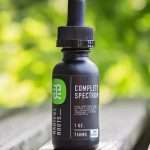It would be impossible to live in this world without having some exposure to environmental toxins. These toxins can impact our health in many ways, and as a Doctor of Chinese medicine, I have seen firsthand how the accumulation of toxins can lead to chronic and debilitating health concerns.
These toxins, such as glyphosate, PFAS (per- and poly-fluoroalkyl substances), and endocrine disruptors, have raised concerns about their effects on our well-being. However, by becoming informed and implementing practical strategies, we can take control of our health and reduce our exposure to toxins.
In this blog post, we will explore how different toxins can impact our health, ways to minimize exposure, and methods to support the body’s natural detoxification processes.
Understanding Toxins and Their Impact:
a. Glyphosate:
Glyphosate is a widely used herbicide found in products like weed killers. Studies suggest a potential link between glyphosate exposure and health issues such as disruption of the gut microbiome, hormonal imbalances, and potential carcinogenic effects.
b. PFAS (Per- and Polyfluoroalkyl Substances):
PFAS are a group of human-made chemicals found in many everyday products, including non-stick cookware, food packaging, and firefighting foam. Prolonged exposure to PFAS has been associated with adverse health effects, including liver damage, immune system suppression, and hormonal disruptions.
c. Endocrine Disruptors:
Endocrine disruptors are chemicals that can interfere with the normal functioning of hormones in the body. They are found in plastics, personal care products, pesticides, and more. These substances have been linked to reproductive issues, developmental problems, and increased risk of certain cancers.
Immortal All-Stars Capsules
Our herbal heavy hitters come together in this formula to help you reach your peak!
Complete Spectrum Tincture
The perfect add-on to any supplement assortment. Packed with full spectrum hemp to optimize your day or night!
Reducing Exposure to Toxins:
a. Choose Organic and Non-Toxic Products:
Opt for organic food whenever possible to minimize exposure to pesticides and genetically modified organisms. Use natural cleaning and personal care products without harmful chemicals like phthalates, parabens, and synthetic fragrances.
b. Filter Your Water:
Invest in a high-quality water filtration system to remove potential contaminants, including heavy metals, chlorine, and industrial pollutants. Filtered water can be used for drinking, cooking, and bathing.
c. Minimize Plastic Use:
Avoid using single-use plastics and opt for glass, stainless steel, or BPA-free containers. Heat and store food in glass or ceramic containers to reduce exposure to plastic-based chemicals.
d. Improve Indoor Air Quality:
Ventilate your home regularly to reduce indoor air pollution. Use natural cleaning products, avoid smoking indoors, and consider adding indoor plants that help purify the air.
Supporting Natural Detoxification:
a. Nutrient-Rich Diet:
Consume a balanced diet rich in antioxidants, fiber, and essential nutrients to support your body’s detoxification processes. Include foods like leafy greens, cruciferous vegetables, berries, and herbs like cilantro and turmeric.
b. Hydration:
Stay properly hydrated to support kidney function and help eliminate toxins from the body. Aim for at least eight glasses of filtered water daily.
c. Exercise:
Engage in regular physical activity to stimulate blood circulation, lymphatic flow, and sweat production, which aids in toxin removal.
d. Stress Management:
Chronic stress can impair detoxification processes. Practice stress management techniques like meditation, yoga, or engaging in hobbies that help you relax and unwind.
Conclusion:
While there are many things out of our control, we can make choices to live a healthier life by reducing our exposure to toxins.
I find this to be particularly important for children whose brains and bodies are still developing, but it is essential that we all make it a priority to reduce our toxin input and begin to find ways to detoxify our bodies.
By understanding the impact of toxins on our health and taking proactive measures, we can empower ourselves to make informed choices and reduce exposure. Incorporating practices such as choosing organic, filtering water, minimizing plastic use, and supporting natural detoxification can help protect our well-being.
Remember, small changes can make a significant difference in taking control of your health and promoting a toxin-free lifestyle.
Note: It is important to consult with healthcare professionals for personalized advice, especially if you have specific health concerns or conditions.
Sources:
- Mesnage, R., et al. (2015). Major Pesticides Are More Toxic to Human Cells Than Their Declared Active Principles. BioMed Research International, 2015, 1-8.
- Hu, X. C., et al. (2016). Detection of Poly- and Perfluoroalkyl Substances (PFASs) in U.S. Drinking Water Linked to Industrial Sites, Military Fire Training Areas, and Wastewater Treatment Plants. Environmental Science & Technology Letters, 3(10), 344-350.
- Gore, A. C., et al. (2015). Executive Summary to EDC-2: The Endocrine Society’s Second Scientific Statement on Endocrine-Disrupting Chemicals. Endocrine Reviews, 36(6), 593-602.
- World Health Organization. (2016). Guidelines for Drinking-Water Quality: Fourth Edition Incorporating the First Addendum. Geneva: World Health Organization.
- Singh, R., & Gautam, N. (2011). Heavy Metals and Living Systems: An Overview. Indian Journal of Pharmacology, 43(3), 246-253.






